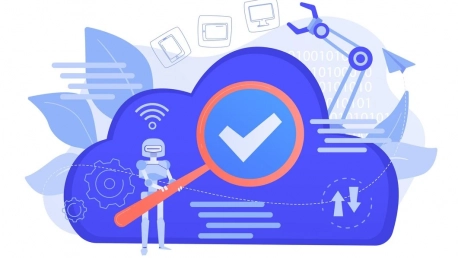The transformative journey of tech businesses in the digital age is spearheaded by the adoption of cloud-native applications. This introduction will explore the evolution of cloud-native technology and set the stage for understanding its profound impact on modern tech enterprises.
From Legacy Systems to Cloud-Native Innovation
The Cloud-Native Phenomenon
Cloud-native applications have emerged as more than a passing industry trend; they represent a fundamental recalibration of how software is created, deployed, and operated. Defined by their inherent adaptability, these applications are purpose-built to exploit the vast potential of cloud computing. They thrive on the principles of microservices, containerization, dynamic orchestration, and seamless automation, thereby differentiating themselves markedly from traditional, monolithic software systems.
Embracing the Cloud-First Methodology
Businesses once tethered to on-premises solutions are now migrating to a cloud-centric approach. By embracing a cloud-first methodology, organizations ensure that application design and architecture are optimized for cloud environments from inception. This strategic pivot heralds cost efficiencies, elasticity, rapid provisioning, and resilience, laying the groundwork for unprecedented scalability and adaptability.
Cloud-Native Capabilities and Competitive Edge
Harnessing Scalability and Reliability
The scalability that cloud-native applications offer is not confined to handling data or user growth. It is a means to dynamically adjust resources in real-time to meet fluctuating demands, ensuring that businesses remain robust during peak loads and cost-effective during lulls. Additionally, their reliability stems from a distributed architecture that mitigates the risk of single points of failure, thus guaranteeing better service continuity.
Rapid Deployment and Continuous Improvement
Cloud-native applications excel at accelerating deployment cycles, a boon to businesses that need to roll out features swiftly. This agility is complemented by the ethos of continuous improvement, where incremental updates occur in response to user feedback and market shifts. Such a modus operandi facilitates a nimble, response-oriented business model, which is vital in a fast-paced, customer-focused market landscape.
Operational Excellence with Cloud-Native Applications
Streamlining Business Processes
By employing cloud-native applications, businesses can cut through complexity and streamline operational processes. Automated workflows and integrated cloud services contribute to reducing manual intervention, thus optimizing resource usage. This leads to operational efficiency, enabling tech companies to allocate human and fiscal resources towards innovation and strategic efforts.
Ensuring Security and Compliance
Security and compliance are not afterthoughts in cloud-native architecture. These applications are imbued with robust security protocols, adhering to compliance requirements from the get-go. Proactive threat detection and automated compliance checks become part of the fabric of cloud-native environments, ensuring that as tech businesses scale, they do so responsibly and securely.
Strategic Advantages in a Digital Ecosystem
Innovating with Cloud-Native Solutions
Innovation is the lifeblood of tech businesses, and cloud-native applications serve as a catalyst in this regard. These solutions allow companies to swiftly pivot and adapt, facilitating the development of novel products and services. The ecosystem of cloud resources and microservices acts as a fertile ground for continuous innovation, empowering businesses to stay ahead of the curve.
Leveraging Data Analytics and AI
Cloud-native strategies fortify tech businesses with enhanced data analytics and AI capabilities. These technologies allow for in-depth insights and personalization at scale, equipping companies with the intelligence to make informed, strategic decisions. The competitive edge gained through advanced data analytics and AI integration has become indispensable in the era of big data.
Building the Cloud-Native Future
Preparing for a Cloud-Driven Landscape
The future points unequivocally towards a cloud-driven business landscape where cloud-native applications become the de facto standard. Tech businesses must anticipate this direction to sustain longevity and competitiveness. The shift to cloud-native is not simply an IT concern; it is a strategic imperative for the entire business ecosystem, demanding adroit execution.
Educating and Transitioning Teams
In today’s digital era, tech companies are undergoing significant transformation, largely owing to the integration of cloud-native technologies into their operations. This shift is not just an upgrade in technology—it’s a revolution that is redefining the capabilities of modern tech enterprises.









